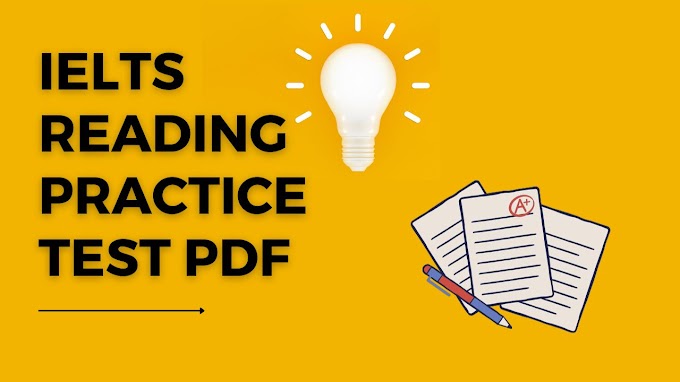10 IMPORTANT IELTS LISTENING TIPS AND TRICKS
 |
| 10 IMPORTANT IELTS LISTENING TIPS AND TRCIKS |
1. Practice listening to English as much as you can by engaging in activities like viewing English-language TV series and films, listening to English-language music, and tuning into English-language podcasts or radio stations.
2. Use internet tools to your advantage, such as practice exams and activities, to help you get better at listening.
3. You should pay particular attention to the many accents and speaking accents used on the exam, and you should practice listening to a range of accents to help you get more used to various speaking dialects.
4. While you are listening, make thorough notes that you may refer to later to aid with comprehension and memory.
5. Based on the conversation's overall context or the knowledge that has already been provided, try to anticipate what the speaker will say next.
6. Instead of becoming distracted by particular words or phrases, concentrate on the important words and phrases in the listening passage and attempt to absorb the overall meaning of the text.
7. It will be simpler for you to comprehend spoken English if you have a strong command of the English language, so try to enhance your vocabulary and grammar.
8. It is a regular job on the IELTS Listening exam to listen for particular information, such as names, dates, or numbers, therefore practice this skill.
9. Last but not least, take a practice exam, obtain feedback, and focus on the areas where you need to improve.
10 IMPORTANT IELTS LISTENING TIPS AND TRICKS
- Prior to hearing the text, review the questions: This will make it easier for you to comprehend the passage's meaning and to concentrate on the exact details you need to pay attention to.
- Take notes and use active listening to help you retain the details and comprehend the passage's broader meaning.
- Learn about various accents: The IELTS exam may feature speakers with a range of accents, therefore it's crucial to become used to listening to various accents.
- Understanding the basic concept: Try to comprehend the passage's fundamental idea rather of concentrating on specific words or phrases.
- Practice listening for specific information: Listening for names, dates, or numbers is a frequent task in the IELTS Listening test
- A strong grasp of the English language will make it simpler for you to comprehend spoken English, so work on your vocabulary and grammar.
- Try to anticipate the speaker's next words: Depending on the conversation's context or the knowledge that has already been shared.
- Eliminate the answers that are blatantly incorrect to boost your chances of choosing the right response by using the process of elimination.
- Learn about the many sorts of questions on the listening test: Multiple-choice, short-answer, and labeling diagrams or maps are all part of the listening test.
- Practice, Practice, Practice: The more listening you do, the more fluent your comprehension of spoken English will be, and the better you'll do on the IELTS Listening test.




0 Comments